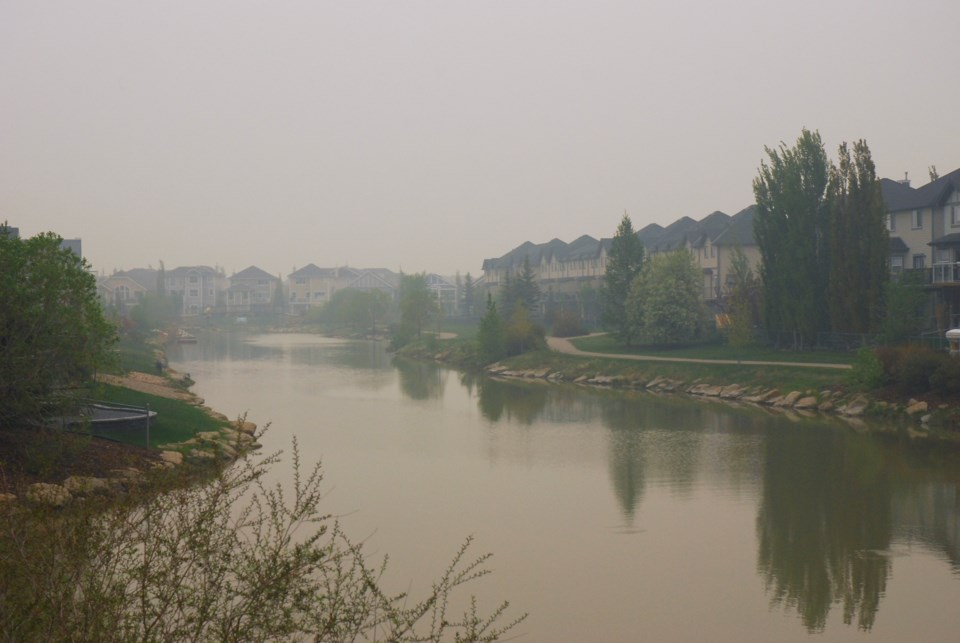COCHRANE— Smoke from wildfires in British Columbia, Saskatchewan, Manitoba and the northern United States have clouded Cochrane for the past month lowering the air quality of the region.
Richard Carr Fire Research Analyst with the Canadian Forest Service, Natural Resource Canada, said the air quality in the Cochrane area has been heavy with smoke this summer due to fires south, west and east of the province.
“We get the wind coming in from the east so we get the smoke piling up against the mountains and accumulating in Alberta. That’s happened quite a few times,” Carr said. “This year was a little unusual just because of the air circulation bringing in smoke from both the east and the west, even from the south at times. So it’s maybe a little unusual to have that type of situation for a long time.”
He added the smoke permeating Cochrane has been fuelled by the high amount of wildfires the country has faced this summer. The extreme drought facing Western Canada has been growing over the summer which makes forests more susceptible to large fires.
Active areas of fires contributing to smoke include British Columbia, parts of Alberta, Saskatchewan, Manitoba and Ontario.
“There’s a lot of areas that are burning quite readily and they’ve put a lot of smoke in the air,” Carr said.
The Canadian Press reported Tuesday (Aug. 17) Nearly 300 wildfires were burning across British Columbia but showers and cooler temperatures have taken an edge off the most aggressive blazes and curbed a cascade of evacuation orders and alerts.
Statistics from the wildfire service show 8,262 properties around B.C. are on evacuation order, a leap of nearly 2,000 since Friday, while residents of almost 23,000 more homes must be ready to leave on short notice.
More than 8,000 square kilometres of trees, bush and grassland have been charred since the start of the wildfire season, an increase of nearly 400 square kilometres in a single day.
Currently, the changing wind circulation in the area is driving smoke southwards which will help the air quality in Cochrane.
“We’re going to see air quality improvement for the most part over the next few days,” Carr said.
He added changing weather patterns over the next bringing rain in the region will potentially help to capture some of the smoke particles in the air and changing wind patterns from the north will further helping improve air quality. This rain is also expected in British Columbia helping to potentially further reduce smoke blooms affecting the province.
The country is approaching the end of the wildfire season and residents can expect to see the number of fires drop entering into September.
He said the province will still have active blazes, but the number of new fires will see a decline. Carr added a change in wind patterns in September will also help disperse smoke over the coming weeks.
For those unsure about the air quality on a given day Carr recommended visiting the air quality index for Calgary to gauge what it may be like outside. Visit weather.gc.ca to learn more.
The air index in the Calgary region was listed as low risk at level three as of Tuesday (Aug. 17) evening, on Sunday (Aug. 15) Cochrane saw levels as high as eight. Air quality is measured from one (low risk) to 10 or higher (high risk).
For those concerned about air quality they can inside as much as possible, invest in an air-purifying system or wear an air-purifying mask if outside for prolonged periods.
“You can also look at the horizontal visibility— How far can you see when you go outside,” Carr said. “If you can only see a kilometre or less you can pretty sure that the air quality is going to be bad.”




